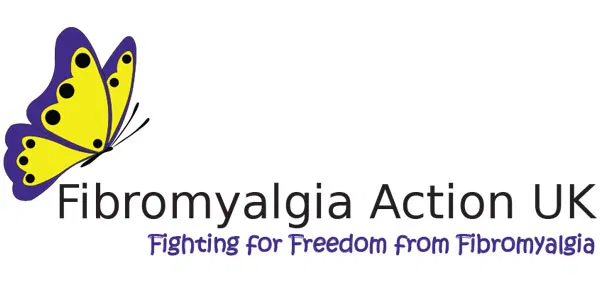- The Legal 500 Leading Firm 2025
- Ranked in the Chambers UK
- 97% Success Rate


Specialist Fibromyalgia Solicitors
A Fibromyalgia Claim is a fundamental process that sufferers can use to get their life back on track after a diagnosis.
Fibromyalgia is a pain syndrome of chronic widespread musculoskeletal pain and fatigue. The pain is thought to be caused by abnormalities in the pain pathways in the central nervous system.
This condition can affect people of all ages and backgrounds, but it is seven times more likely to be diagnosed in women than men. The condition tends to develop between the ages of 30 and 50, however, it is not uncommon for it to occur in people of all ages – from the very young to elderly.
Fibromyalgia affects more than a million people in the UK.
If you are suffering from fibromyalgia as a result of an accident that was not your fault, and even if you have an existing claim, get in touch with the specialist Fibromyalgia Lawyers at Brian Barr Solicitors to see if we can assist.
It is simple and hassle free to move your claim to Brian Barr Solicitors, who are experts in dealing with chronic pain litigation. Call us today to find out more.
Fibromyalgia is a pain syndrome of chronic widespread musculoskeletal pain and fatigue. The pain is thought to be caused by abnormalities in the pain pathways in the central nervous system.
This condition can affect people of all ages and backgrounds, but it is seven times more likely to be diagnosed in women than men. The condition tends to develop between the ages of 30 and 50, however, it is not uncommon for it to occur in people of all ages – from the very young to elderly.
Fibromyalgia affects more than a million people in the UK.
If you are suffering from fibromyalgia as a result of an accident that was not your fault, and even if you have an existing claim, get in touch with the specialist Fibromyalgia Lawyers at Brian Barr Solicitors to see if we can assist.
It is simple and hassle free to move your claim to Brian Barr Solicitors, who are experts in dealing with chronic pain litigation. Call us today to find out more.
Our Partnership with Fibromyalgia Action UK
Brian Barr Solicitors is a trusted legal partner of Fibromyalgia Action UK, highlighting our expertise in supporting sufferers through compensation claims for Fibromyalgia.
Yes, if your fibromyalgia symptoms were caused, or worsened as a result of another person’s negligence, then you may be eligible for a fibromyalgia compensation claim. Whether you were involved in a car accident that wasn’t your fault, had an accident at work, or had a slip or trip, you may be able to claim compensation for your losses.
In order to claim, you will need to be able to demonstrate that negligence was the cause of your fibromyalgia symptoms. Additionally, the value of your claim will depend entirely on the severity of your symptoms and the effect it has had on your ability to work.
Medical experts will be instructed to assess your symptoms and provide their opinion on the effect your accident has had on your quality of life, and how that is likely to change in the future.
Time Limits on Fibromyalgia Claims
If you’re looking to make a claim about fibromyalgia that was caused by an accident through no fault of your own, the general rule is that you must claim within three years of the accident or knowledge of the negligence which caused your symptoms. There are exceptions to this rule however the sooner you act and seek specialist help, the better.
Can I claim compensation for Fibromyalgia?
Yes, if your fibromyalgia symptoms were caused, or worsened as a result of another person’s negligence, then you may be eligible for a fibromyalgia compensation claim. Whether you were involved in a car accident that wasn’t your fault, had an accident at work, or had a slip or trip, you may be able to claim compensation for your losses.
In order to claim, you will need to be able to demonstrate that negligence was the cause of your fibromyalgia symptoms. Additionally, the value of your claim will depend entirely on the severity of your symptoms and the effect it has had on your ability to work.
Medical experts will be instructed to assess your symptoms and provide their opinion on the effect your accident has had on your quality of life, and how that is likely to change in the future.
Time Limits on Fibromyalgia Claims
If you’re looking to make a claim about fibromyalgia that was caused by an accident through no fault of your own, the general rule is that you must claim within three years of the accident or knowledge of the negligence which caused your symptoms. There are exceptions to this rule however the sooner you act and seek specialist help, the better.
Get In Touch
- To start your claim, simply complete the form below and we will be in touch shortly.
- No Win No Fee Claims
- Friendly & Compassionate Service
- Easy Claims & Transfer Process
- Available on WhatsApp
£700,000 claimed for client suffering from chronic pain.





Looking For A Fibromyalgia Lawyer To Represent You?
Get in touch today to see how Brian Barr Solicitors can help you.

Steven Akerman
Personal Injury Solicitor & Director, Brian Barr

Alex Cohen
Personal Injury Solicitor & Director, Brian Barr

Philip Cohen
Director, Brian Barr
What is the average settlement for Fibromyalgia Claims?
Fibromyalgia personal injury claims can often attract a large sum in compensation, however, the exact amount will depend on the severity of the injury and the impact it has had on your life. The value of the compensation claim can vary greatly from one case to another, from around 100k to more than 1.5 million.
The injury aspect is compensated with an award for pain, suffering and loss of amenity (PSLA), with the guidelines being set by the Judicial College. The other aspects of the damages award is compensation for financial losses and expenses which occur due to negligence. This includes loss of earnings, aids, equipment, medical treatment and care.
When it comes to fibromyalgia compensation claims, it’s difficult to predict the average settlement, due to the fact that claims are assessed on a case-by-case basis. For example, if a young person in a high-paying job claimed compensation for fibromyalgia, they would assess the effect it has had on their life. For example, if they were never able to return to work and required a high level of care, then they could expect to receive a large compensation payout.
However, if someone who is close to retirement in a lower-paying job were to claim, it would be decided that the negligence will impact their life for a much shorter amount of time, so they could expect to receive a much lower award of damages for the same injury.
Why use a specialist Fibromyalgia Lawyer?
As an expert fibromyalgia lawyer firm, we're fully up to speed with the ins and outs of these intricate legal proceedings and confidently organise settlements and lead litigation. With over 40 years combined experience of successfully handling cases within the realm of chronic pain, the specialist lawyers at Brian Barr are able to seamlessly pinpoint, in the legal sense, how someone's condition was initiated and has caused distress.
Because there is so much variance of fibromyalgia symptoms, and also because the symptoms of fibromyalgia are very similar to several other conditions, adequate legal representation is of utmost importance for fibromyalgia sufferers seeking compensation. A specialist fibromyalgia lawyer is recommended due to the complexity of the debilitating chronic pain disorder and the legalities involved.
Talk to Brian Barr's Fibromyalgia Solicitors
Brian Barr Solicitors are the UK’s leading Fibromyalgia Lawyers. The specialist legal team at Brian Barr encompasses qualified Fibromyalgia Solicitors that understand the complexities of chronic pain conditions – that is because we deal exclusively with people suffering from chronic pain. We are renowned for developing positive working relationships with sufferers – this approach enables Brian Barr Solicitors to fully grasp their client’s situation, so their case is best represented in court.
We are a dedicated law firm specialised in Chronic Pain Claims, aiming to build strong relationships with our clients. We work hard to ensure our clients receive the compensation they deserve. Our team of personal injury solicitors Manchester has over 20 years of experience, which has enabled us to develop a dedicated team who are passionate about helping our clients in a caring, understanding and professional manner.
At Brian Barr Solicitors we will offer you peace of mind throughout the whole process. Funding your case may well be very straightforward through your existing legal expenses cover or our ‘no win, no fee’ scheme. We also have access to leading medical specialists and experts whose understanding of disability, chronic pain and serious injury is second to none.
We are specialists in these claims, and are recognised as one of the leading teams of Chronic Pain Solicitors in Liverpool, Sheffield, Warrington, Blackpool, Leeds, and across the North West, consistently achieving better results and larger compensation payouts for claimants. In addition, our roster of exceptional fibromyalgia lawyers are renowned for identifying and pursuing alternative approaches to work around restrictions, such as the statute of limitation for launching a claim, to ultimately ensure victims receive the full compensation they deserve.
We regularly have cases transferred to us because of our specialist fibromyalgia, CRPS and chronic pain solicitors, so please get in touch and let us help you get the ball rolling and the outcome you require to provide the best quality of life possible.
Fibromyalgia is a widespread musculoskeletal pain and fatigue disorder that is recognised as a syndrome and is sometimes known as Fibromyalgia Syndrome. It has become a syndrome due to the large number of symptoms and other conditions which can indicate this particular disorder.
Fibromyalgia specifically means pain in the muscles, ligaments and tendons, generally all the softer, more fibrous tissues in the body. There is a sense, according to most patients, of ‘aching all over’, with the related symptoms of a chronic case of flu, but 24 hours a day.
Figures regarding how many people are living with fibromyalgia vary, although it is often described as a common condition. Arthritis Research UK and other charities and bodies in related areas believe that 1 in 25 people in the UK may be affected with the condition to some degree.
There are more severe cases and those where people can function comfortably from day to day, with only mild symptoms.Many people suffering with fibromyalgia have related conditions such as chronic pain syndrome.
If you are suffering with Fibromyalgia, you are likely eligible for Personal Independence Payment (PIP).
PIP is designed to help adults who struggle because of a condition or disability, and can provide much needed financial assistance to Fibromyalgia sufferers whose daily life and employment status are affected by their condition.
You will be eligible for PIP if your difficulties in daily living or mobility have lasted for longer than 3 months and are predicted to last for at least 9 more months.If your application for PIP was unsuccessful, or you believe the benefits are not enough to cover your needs in either time or amount, you may apply for “mandatory reconsideration” with the DWP.
Read more about the PIP eligibility for Fibromyalgia sufferers.
If your fibromyalgia was triggered or made worse by an accident or trauma, then you may be entitled to fibromyalgia compensation. Additionally, if you have already claimed for fibromyalgia compensation, but your previous solicitor advised you to settle for too little, then we may be able to help.
As leading solicitors for fibromyalgia cases in England and Wales, Brian Barr Solicitors can help you get the compensation you deserve. We have collectively secured fibromyalgia compensation payouts of over £20 million for victims in the past. So if you’re looking for a fibromyalgia lawyer to represent you, then get in touch today to see how Brian Barr Solicitors can help you.
Unfortunately there is no complete understanding of what causes fibromyalgia, and research is continually being carried out to determine this cause.
Research currently suggests that there is a link and interaction between physical, mental and psychological factors in each sufferer. The pain that is felt in any individual is often affected by their emotional state and conditions such as anxiety and depression can exacerbate physical pain. The alternative can also be true.
Many people experience a trigger event which results in the fibromyalgia symptoms. These trigger events are often things such as viral infections, mental trauma or physical trauma such as an injury in a public place, at work or in a road traffic accident.
One of the leading theories is that people living with fibromyalgia have developed changes in the way their central nervous system processes the pain messages around their body. This could be due to chemical imbalances in the nervous system. Research has shown that people living with fibromyalgia syndrome have strikingly low levels of the hormones noradrenaline, dopamine and serotonin in their brains and the cause of the syndrome could be linked to these differences. These hormones are essential for regulating certain behaviours integral to a happy healthy life including mood, sleep, behaviour, stress management and appetite.
Further research suggests that disturbed sleeping patterns may be a cause of fibromyalgia or exacerbate the condition. Conversely, fibromyalgia sufferers often live with chronic fatigue but continue to suffer with disturbed sleep.
Most studies have concluded that there are no links between fibromyalgia and genetics, although there is further research being carried out in this area.
Fibromyalgia is well-known for its difficulty when it comes to diagnosis. There is no specific test which gives a straight diagnosis of fibromyalgia syndrome and therefore it may take some time to get to the final answer.
Throughout diagnosis, you will be asked about your symptoms and how they affect you. The symptoms of fibromyalgia are very similar to several other conditions and therefore it is important to be as specific as possible when discussing symptoms with the doctor, including the way in which they may be having an impact on daily activities, work and general day to day life.
Your body will be examined in depth to check for visible symptoms which may suggest other conditions, including chronic fatigue syndrome, multiple sclerosis and rheumatoid arthritis. There are clear tests for these conditions including both urine and blood tests and also x-rays and MRI Scans. Sometimes, even when you are found to have another condition this doesn’t always rule out fibromyalgia.
For a diagnosis of fibromyalgia syndrome specific criteria usually have to be met. The most commonly used criteria, as outlined by the NHS, are:
- A similar level of pain or discomfort for at least three months.
- You have either severe pain in three to six areas of your body or milder pain in seven or more areas.
- No other explanation for your symptoms has been found.
The next stage of diagnosis is usually assessment of the extent of the pain through the application of pressure to certain ‘tender points’ on the body – this type of assessment isn’t as common as it used to be.
Alongside a diagnosis of fibromyalgia, many people also find themselves with other closely related conditions such as depression, anxiety or irritable bowel syndrome, although this may mean more testing and assessment.The diagnosis process isn’t quick or easy but once an answer is found, treatment can be sought.
Fibromyalgia affects everyone in different ways. The condition is very personal and even in support groups members will suffer differing degrees of the syndrome and may experience only a few shared symptoms, or the same symptoms at different levels and intensities.
Overall fibromyalgia is recognised as a chronic condition, but the symptoms of the condition may come in waves and there may be periods which are relatively pain free and others which can leave sufferers unable to leave bed. The impact that fibromyalgia has on daily activities such as working a full-time job is highly dependent upon the individual in question. Many individuals with fibromyalgia are able to work comfortably, although they may need time off for additional medical appointments, others are not in position to hold down a regular job.
Fibromyalgia is recognised as a disabling condition and has the same life-impacting possibilities as conditions such as rheumatoid arthritis.
There has been an increase in awareness surrounding the condition and many people who previously may have felt unable to work have since found themselves in a position to do so thanks to increased awareness in the workplace.
It remains difficult to predict the prognosis of fibromyalgia on an individual basis because so many factors, physical, psychological and even environmental, play a role in the development of the condition. Many individuals go through both positive and negative periods with the condition and in time find a treatment method which makes living with the syndrome more manageable.
There is no cure for fibromyalgia but many people who have been diagnosed with the syndrome are able to live a healthy and full life, especially those considered to be suffering with the lower level, less severe versions of the syndrome.
Many of the treatments available for fibromyalgia have been researched in depth and have been shown to alleviate and manage the symptoms. Chemical treatments can be paired with lifestyle changes and it is important to manage both alongside each other. The wide range of medications available means that if a treatment becomes less effective your GP may be able to prescribe something else which works well.
Living with fibromyalgia is a trial but with many different treatment methods there is always hope there will be something else to try or a new combination to consider. The syndrome is also becoming more well-known and awareness is also increasing, leading to more research and interest in finding answers to the root cause of the condition.
The business of fibromyalgia cures has been discussed at length. As with many other conditions, there has been a notable interest in unscientifically proven cures, usually available online. As a condition which has no cure and this is, at this moment in time, medically proven, you should always be aware and cautious of anything that is sold as a fibromyalgia cure. As well as being a potential waste of money you cannot be sure of the ingredients and medical benefits of these products, despite the claims that they alleviate your symptoms. The only way to manage and improve fibromyalgia syndrome is by following the advice of your doctors and other medical professionals.
Diagnosing fibromyalgia is difficult because of the conditions which are closely related and have very similar symptoms. There is no specific test for the condition and therefore one of the main processes in diagnosing fibromyalgia is ruling out other conditions, often through urine and blood tests and a range of scans.
Fibromyalgia is considered a notoriously difficult condition to diagnose. Many sufferers experience frustration as GPs struggle to come to a conclusion and some doctors believe it to be psychosomatic. A lack of understanding of a physical source of the pain and fatigue does not mean that the problem is psychological, although this is one theory that is widely put forward, so you may find you need to push for the diagnosis you need in order to be able to move forward with your life.
Doctors are there to help you get this diagnosis and, in the short time they have with you, they only get a snapshot of your condition. It is important to be as descriptive as you can be, describe your day to day life and provide them with examples if you can, even a written log. There are a large range of symptoms of Fibromyalgia and diagnosis will be easier if you can accurately describe yours. Not being able to understand what you deal with on a daily basis may lead a doctor to believe you’re imagining your condition or that you may have hypochondriac tendencies.
If you feel that you have not had the diagnosis you need in order to move forward with your life. It may mean moving doctors or even surgeries. But there will be a doctor out there who is happy to work with you and can help to reduce your symptoms.
It’s not clear what causes fibromyalgia although it may be caused – or exacerbated by – physical traumas, such as car accidents and falls, often due to no fault of the patient.
It can also start after a stressful event, like the death of a loved one, abuse, or war deployment.
Many people suffering from fibromyalgia date their condition back to a traumatic event. It does not need to be associated with a trauma to the spine, and many experts link fibromyalgia symptoms to injury that affects the head and neck, and claim that traumatic triggers of fibromyalgia can be much more widespread.
Although experts are increasingly aware of the correlation between trauma and fibromyalgia, many doctors are not. It is possible for a car accident to cause fibromyalgia although the condition can be misdiagnosed as whiplash.
Fibromyalgia affects people differently but the main symptoms you should look out for include:
- widespread muscle pain and joint pain
- fatigue
- poor sleep
- anxiety or depression
- digestive problems, including diarrhoea or constipation, and IBS
- stiffness
- face or jaw pain (temporomandibular disorders)
- headaches or migraines
- memory problems
- extreme sensitivity and tingling or numbness in hands or feet
Read more about how we support client throughout the UK to claim compensation for their injuries or chronic pain conditions. Brian Barr Solicitors consistently achieves great results and high compensation amounts.
Get In Touch
To start your claim, simply complete the form below and we will be in touch shortly.





